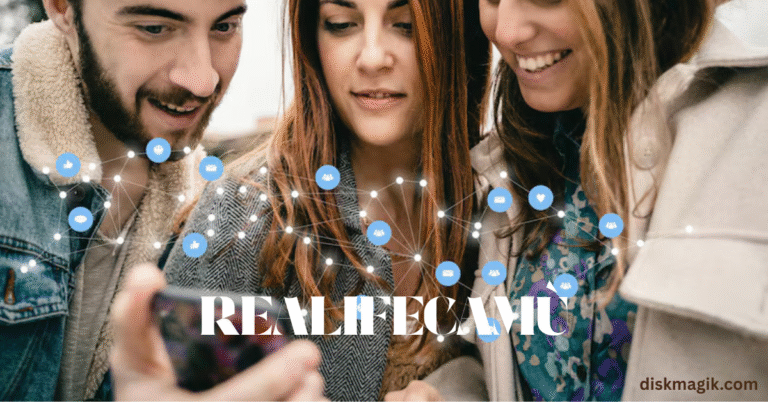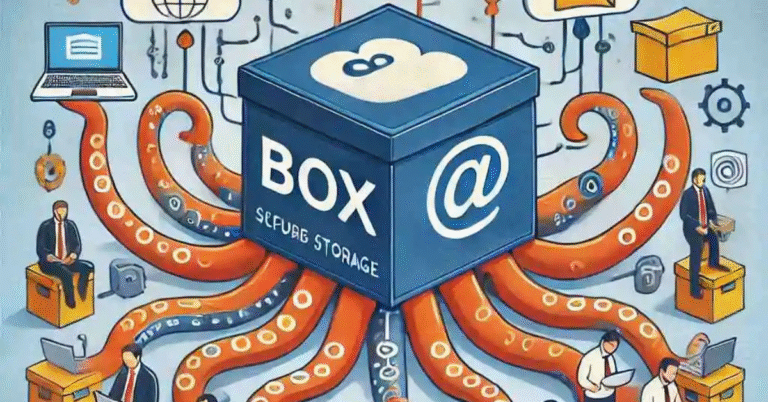Justin42501 – The Digital Identity Revolution

In a world where our online presence often defines us more than our physical lives, usernames have become the modern equivalent of names, titles, and even legacies. Among these millions of digital monikers, one stands out—Justin42501. It may seem like a random username at first, but behind such identifiers lies a story, a psychology, and a reflection of how we build and perceive identity in the digital age.
The rise of usernames like Justin42501 highlights a global shift. We no longer introduce ourselves by our surnames or hometowns, but by our digital handles—unique strings of text that represent who we are, what we value, and how we wish to be seen. Whether on gaming platforms, social media, or digital forums, this transformation is reshaping what it means to be “known.”
This article dives deep into the concept of digital identity through the lens of Justin42501—exploring how online aliases shape our culture, behavior, and even our sense of self.
The Birth of a Digital Persona
. From Username to Identity
Every username tells a story. What might seem like a random assortment of characters often represents personal milestones, secret meanings, or moments in time. For instance, Justin42501 could signify a birth date, a code, or a memory meaningful only to its creator.
Before the internet, our names were fixed by heritage or family. But online, we became the authors of our own identities. A simple username became a digital fingerprint—a representation of individuality in a sea of billions. From the earliest chatrooms and message boards of the 1990s to modern platforms like TikTok, Twitch, and Reddit, usernames have evolved into personal brands that transcend geography and culture.
This freedom to name oneself was revolutionary. It gave people the power to exist as they chose—to explore, experiment, and express. Some became heroes in digital worlds; others, anonymous spectators. And through it all, these identities—like Justin42501—became digital mirrors reflecting the complexity of modern humanity.
. The Rise of Online Handles
In the early days of the internet, usernames were practical tools. They helped users log in, communicate, and differentiate themselves. Over time, they grew into extensions of personality. Think of “GamerX95,” “Dreamcatcher22,” or “NightOwl_7”—each conveys an image, a vibe, and a story.
For Justin42501, the name likely blends personal significance (Justin) with a number sequence tied to memory or preference. The combination is simple, yet unique enough to stand out in a crowded digital ecosystem. This balance of individuality and anonymity is what makes usernames both personal and universal.
Understanding Digital Aliases in the Modern Age
. Why People Choose Unique Usernames
Choosing a username has become an act of self-definition. It’s the online equivalent of choosing your outfit, tone, or even your voice. People pick names that reflect their aspirations, humor, or emotional states. Some prefer mystical or symbolic names; others stick to real names mixed with numbers for a touch of realism and relatability.
Justin42501, for example, suggests someone grounded—using a real first name but adding numbers for a hint of personalization and mystery. It reflects the dual nature of digital identity: human familiarity blended with coded anonymity.
. The Psychology Behind Digital Identities
Psychologists have found that usernames often reveal subconscious desires. They allow people to project idealized versions of themselves. Someone shy in real life might choose a bold, commanding handle online. Another might hide behind humor or irony.
In Justin42501’s case, the inclusion of a real name implies confidence and authenticity, while the numeric code adds a layer of protection. This subtle blend creates a safe yet expressive identity—human enough to connect, guarded enough to remain in control.
The Story Behind Justin42501
. Possible Origins of the Name
Like many usernames, Justin42501 probably originated from a combination of personal elements. “Justin” could be the user’s actual name, a favorite character, or a chosen identity. The numbers “42501” might represent a significant date—perhaps April 25, 2001—or a meaningful code.
Regardless of its exact origin, the construction follows a classic online pattern: personalization plus numerical uniqueness. It’s a simple but powerful formula that millions use to carve out space for themselves in an endless digital universe.
. The Mystery of the Numbers
Numbers in usernames often hold hidden meanings. They might symbolize birthdays, anniversaries, or favorite digits. But they also serve a practical function—ensuring that one’s chosen name isn’t already taken. In digital ecosystems with billions of users, numbers become a badge of identity.
In the case of Justin42501, the digits add both distinction and secrecy. They make the username unique while concealing the personal story behind them—a perfect metaphor for the modern internet: personal, yet anonymous; open, yet protected.
From Gaming to Global Platforms
Usernames like Justin42501 became widespread during the golden era of online gaming and social media. Players and users began crafting distinct digital personas that allowed them to interact across borders and languages. On platforms like PlayStation, Xbox Live, or Steam, your username was your identity—your reputation, achievements, and personality all tied to that single name.
Over time, usernames transcended gaming. They became essential in professional networking (LinkedIn), artistic sharing (DeviantArt, Instagram), and even global movements (Twitter/X). A simple name could represent not just a person but an entire digital legacy.
The Shift from Real Names to Digital Masks
In the physical world, names connect us to family and heritage. Online, they connect us to creativity and self-expression. A username gives freedom—a way to escape expectations, explore alternate selves, or build communities without judgment.
Justin42501 embodies this new freedom: an identity untethered from labels, free to grow, evolve, and adapt to digital change. In this sense, usernames are not masks—they are mirrors that reveal who we choose to be.
How Online Names Become Global Identities
In the digital landscape, a username is more than a login credential—it’s a brand. Just as a company builds reputation through consistency, individuals establish recognition through their chosen handle. The name Justin42501, though seemingly simple, can grow into an online trademark recognized across multiple platforms. Whether it’s used for gaming, social networking, or professional endeavors, consistency across platforms builds digital credibility.
People begin associating usernames with particular tones, aesthetics, or reputations. Think about influencers or gamers whose names are instantly recognizable—Ninja, PewDiePie, Pokimane. These identities began as mere handles and evolved into global empires. Similarly, even an ordinary user like Justin42501 leaves behind a recognizable pattern of activity—comments, creations, and connections—that shape their unique corner of the digital world.
In time, the line between the person and the persona blurs. For many, the username becomes an alter ego that grows stronger and more defined than their real-life self. This identity, immortalized through posts, achievements, and interactions, outlives the moment it was created.
Building Trust in a Digital World
In a world full of bots, scams, and faceless entities, trust is currency. A consistent username with positive activity builds credibility. People who interact respectfully, contribute creatively, or share knowledge under a single recognizable identity establish themselves as reliable digital citizens.
For someone like Justin42501, reputation is built interaction by interaction. Every comment, every shared image, every opinion contributes to a public persona. When nurtured carefully, that identity becomes an asset—whether for networking, content creation, or community building.
But just as reputation can build trust, it can also break it. One careless post or controversial opinion can tarnish years of credibility. That’s why understanding how to manage and protect one’s digital brand is critical in today’s interconnected world.
Privacy and Anonymity in the Age of Usernames
. Balancing Expression and Protection
The beauty of usernames like Justin42501 lies in their dual nature—they allow expression while maintaining anonymity. Online, you can express creativity, humor, or vulnerability without exposing your true identity. This digital layer of protection empowers people to explore sides of themselves they might hide offline.
However, anonymity is a double-edged sword. While it enables freedom, it also invites misuse. Trolls, hackers, and fake accounts often exploit this shield to spread negativity or commit cybercrimes. This makes responsible anonymity essential. Choosing a username like Justin42501—a blend of personal familiarity and coded mystery—strikes a balance between openness and security.
. The Fine Line Between Identity and Secrecy
Remaining anonymous online doesn’t mean erasing identity—it means controlling how much of yourself to reveal. Digital experts suggest using a consistent but pseudonymous identity across safe platforms to maintain trust while protecting privacy.
A name like Justin42501 feels approachable—it contains a real name—but the added numerical code ensures a layer of distance. This combination is what many users unconsciously seek: the ability to be recognized without being exposed. It’s the digital equivalent of wearing armor that reflects rather than conceals.
Risks of Digital Exposure
Every online identity leaves a trail—a digital footprint. When users share information across multiple sites, data aggregators can piece together personal details. This means that even usernames can become entry points for cyber threats. Phishing attacks, identity theft, and social engineering often begin with a simple search of a username.
For someone like Justin42501, this highlights the importance of maintaining good cyber hygiene. That includes avoiding password reuse, enabling two-factor authentication, and monitoring where one’s username appears online.
Even small pieces of data—like a date hidden in a username—can provide clues to hackers. Awareness and caution turn digital names from vulnerabilities into shields.
How to Protect an Online Identity
Protecting your online persona involves strategic anonymity. Here are some effective practices:
| Strategy | Description |
|---|---|
| Use strong, unique passwords | Never reuse passwords across platforms. |
| Enable 2FA | Add an extra layer of security through authentication apps or SMS codes. |
| Limit personal sharing | Avoid posting identifiable information linked to your username. |
| Monitor online presence | Regularly search your username to check for misuse or impersonation. |
| Use aliases wisely | Different usernames for professional and personal use can reduce risk. |
Ultimately, the goal is not to disappear but to exist online with awareness and control.
The Influence of Names Like Justin42501 on Social Media Culture
. The Trend of Numeric Usernames
The inclusion of numbers in usernames—like 42501—is more than random. It’s a stylistic trend and a digital adaptation to scarcity. With billions of users competing for unique identifiers, numbers have become part of online fashion. They make common names distinctive and memorable.
But beyond practicality, these numeric suffixes create an aesthetic language. They hint at mystery, order, or identity codes. For example, “Justin42501” feels modern and balanced—a mixture of real and coded, approachable and futuristic.
. Viral Handles and Online Recognition
A strong username can go viral. When people resonate with a name, they remember it, follow it, and share it. Digital creators often build entire brands around their usernames. What starts as a casual handle evolves into a movement or persona.
In a world where attention is fleeting, memorability is power. A simple, catchy name—like Justin42501—can anchor someone in the chaos of digital noise. It becomes their beacon, their calling card, and sometimes, their digital destiny.
Online Communities and the Power of Pseudonyms
. The Birth of Digital Subcultures
Online pseudonyms foster communities built on shared interests rather than physical proximity. In gaming forums, art platforms, or coding networks, people unite under their chosen handles. Usernames become the symbols of tribes, clans, or creative collectives.
In such spaces, names like Justin42501 gain meaning not through fame but through participation. The username represents a personality within a community—a trusted voice, a loyal ally, a skilled creator.
Over time, these communities form their own digital cultures, complete with rituals, slang, and hierarchies. And at the center of it all are the pseudonyms—the flags under which users stand.
. How Usernames Unite and Divide
While usernames unite like-minded individuals, they can also reinforce divisions. Online, identity often determines belonging. Shared tags and names can create inclusive groups but also echo chambers.
Thus, understanding the social weight of one’s digital name becomes crucial. A username like Justin42501, neutral and personal, transcends most boundaries—reminding us that beneath every alias is a real human seeking connection.
Artificial Intelligence and Digital Identity
. How AI Reads and Reacts to Usernames
Artificial intelligence now analyzes usernames to predict user behavior, demographics, and interests. Platforms use AI models to filter spam, identify bots, and personalize user experiences. A name like Justin42501 could, for instance, trigger algorithms to assume certain language preferences or recommend specific content.
AI is also blurring the line between human and digital identity. As avatars and chatbots adopt realistic names and tones, distinguishing between real users and AI entities becomes harder. This raises ethical questions about authenticity and manipulation in digital spaces.
. Predictive Analytics and User Behavior
Predictive algorithms track how usernames behave across platforms. This data shapes advertising, recommendations, and even moderation decisions. For users like Justin42501, it means their digital persona carries invisible data signatures that influence how the internet “sees” them.
It’s both fascinating and concerning—our usernames are not just expressions of self but also inputs into vast AI systems shaping the modern web.
Conclusion: The Legacy of Justin42501
In a world driven by connectivity, Justin42501 symbolizes more than a random username—it represents the evolution of human identity in the digital age. It stands for creativity, privacy, and self-expression, proving that even a simple name can hold depth and meaning.
As our physical and virtual lives continue to merge, the usernames we create become our new names—our digital reflections. Whether we use them to connect, express, or protect ourselves, they’re here to stay as the modern emblems of individuality.
So the next time you see a username like Justin42501, remember—it’s not just a name. It’s a story, a legacy, and a symbol of who we choose to be in the ever-expanding universe of the internet.
FAQs about Justin42501 and the Digital Identity Revolution
1. What does the name “Justin42501” represent?
“Justin42501” is an example of a digital username that blends a personal name with a unique numeric code. It likely represents individuality in a crowded digital world—“Justin” may be a real or chosen name, while “42501” could be symbolic, such as a birth date (April 25, 2001) or a personal identifier. It reflects how modern users mix personal and coded elements to create memorable, distinctive online identities.
2. Why are usernames like Justin42501 important in the digital era?
Usernames have become the foundation of online identity. They’re how we log in, communicate, and build our reputations across platforms. A name like Justin42501 is not just an alias—it’s a digital fingerprint, representing an individual’s online personality, history, and even credibility. In an internet-driven age, your username often becomes more recognizable than your real name.
3. What do the numbers in usernames usually mean?
Numbers often appear in usernames to add uniqueness or convey hidden meaning. They can represent important dates, favorite numbers, or codes that hold personal significance. For instance, “42501” might be shorthand for a date, a zip code, or simply a random sequence chosen for aesthetic reasons. They also help users claim names that might otherwise be taken, making each handle distinct.
4. How can someone like Justin42501 protect their digital identity?
Protecting your online identity starts with awareness. Here are key practices:
- Use unique, strong passwords for each platform.
- Enable two-factor authentication (2FA) to secure accounts.
- Avoid oversharing personal information that connects your username to real-world data.
- Regularly search your username online to ensure it’s not being misused.
- Consider using different usernames for personal, professional, and creative spaces.
This helps maintain privacy while building a trustworthy digital presence.
5. How do usernames influence reputation online?
Your username becomes your public face in the digital world. A consistent, respectable username like Justin42501 builds familiarity and trust. Over time, your actions—posts, comments, projects—attach to that identity, forming your online reputation. Just like real-world branding, the way you engage shapes how others perceive you. One wrong move can harm that reputation, so mindful digital behavior is essential.
6. Are usernames considered a form of personal branding?
Absolutely. A username is the foundation of personal branding online. It’s the name attached to your voice, your work, and your interactions. Influencers, creators, and professionals often maintain a consistent username across platforms to build recognition. For everyday users like Justin42501, it serves as a simple yet powerful personal brand that tells the world who they are—or who they aspire to be.
7. Can AI or companies track a username like Justin42501 across the internet?
Yes, and they often do. Algorithms analyze usernames, behavioral data, and public posts to build digital profiles. This data helps platforms personalize ads and content. However, it also raises privacy concerns, as users may not realize how much their activity is being monitored. Using strong privacy settings, VPNs, and limiting account linking between platforms can help maintain digital control.
8. What will usernames look like in the future?
The future of usernames is evolving with AI, biometrics, and blockchain. Traditional names like Justin42501 may soon merge with verified digital IDs, making them harder to fake or steal. Blockchain technology may allow users to “own” their usernames permanently, preventing duplicates. Meanwhile, AI will make usernames smarter—adapting tone, style, and behavior to user preferences. Despite these changes, individuality and creativity will always remain at the heart of digital naming.






